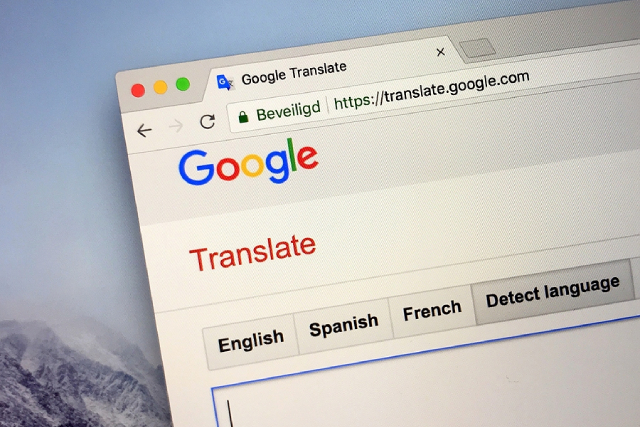Document Translation: How It Helps In Your Business Growth

In an increasingly globalised world, businesses now thrive by connecting with individuals from different parts of the globe. Nevertheless, language diversity exists across various countries. As a result, one of the considerable difficulties that many businesses operating across international borders have is communicating with potential clients who speak different languages.
In such instances, effective global communication is made possible through translation. It improves workflow, accessibility, and assures the legitimacy of transactions across several businesses and sectors, especially in the case of document translation.
Have you ever considered expanding your business through official translation in Singapore? While it may initially sound like a peculiar idea, document translation services can just as well aid your business growth. Below, we outline three ways on how document translation services can help your business succeed.
1. Localisation of services and other information
There is no denying that English is the most widely spoken language in the business world. Still, it holds true that the demand for translation in many regions of the world, particularly Asia, is growing. Reaching out to the local audience by communicating your content in the local tongue may help to increase your business reach.
Due to linguistic and cultural differences, it may be particularly challenging to convey some ideas in English – this is especially true when it comes to avoiding cultural insensitivity. For instance, although Singapore, South Korea, Taiwan, and Hong Kong are collectively referred to as the Four Asian Tigers in English, the term ‘Four Asian Dragons’ is used in Chinese because of the tiger’s sometimes-negative connotations. If you wish to tap into this enormous market, it may be better to translate your documents and website accordingly with the help of a reliable translation agency.
2. Fostering client relationships and branding
The messages you transmit when you translate business documents will have a greater impact on the recipients’ thoughts since most individuals are more comfortable thinking and speaking in their native language. It also helps in increasing the credibility of your business.
In order for the content in all of your marketing materials to resonate with the target audience and for them to have a better understanding of your company’s products and services, translation services should ideally be used to adjust the content to the local market.
3. Utilising social media outreach
Be it instant messaging, online advertisements, or other social media channels, businesses nowadays make efforts to reach out to their existing and prospective clients. For this reason, document translation is an excellent decision if you are considering launching a promotion for your products and services.
This ultimately distinguishes you from competitors and makes engaging with people who prefer to access content in their native tongue easier, thereby boosting the effectiveness of your marketing strategy and improving your online presence.
Conclusion
To facilitate communication and grow your business in any situation, translation is a necessity. Moreover, accuracy is much more essential when determining the documents’ purpose and context. Ultimately, the products or services you offer will define the kind of information or content to translate. It may be related to cryptocurrency, insurance, finance, legal, marketing, and so forth.
If you are seeking professional translation company in Singapore, look no further than Eureka Translations! Bid farewell to translation issues as our seasoned translators do their best to provide prompt and quality services that cover a wide range of documents – social media content, emails, contracts, affidavits, blogs, and the like. To find out more, do not hesitate to contact us today.

From closing a critical cross-border business deal to working with smaller transactions in the main office, companies with a presence in other markets constantly require legal translation services in Singapore for their operations.
Due to the complicated and specialised nature of everything that concerns legal matters, there is zero room for error when translating such content. Otherwise, even one small mistake can lead to dire consequences for all parties involved.
Hence, legal translations require top-notch expertise only possible with a top translation agency. Below are the reasons why it pays to work with professionals.
1. Subject matter expertise is paramount
Everyone knows that the legal field uses lots of specialised terminologies that many readers find difficult to grasp. Legal documents reflect this fact.
Although some translators may be fluent in the source and target languages, it does not necessarily mean that they are familiar with the legal terms, jargon, and concepts. They may also easily omit or inaccurately relay key concepts when translating.
Moreover, there are specific terms used in some legal fields. Therefore, translators must also have the relevant expertise. Take patent applications, for instance. They are often highly specialised and must satisfy the requirements of all countries involved.
Businesses applying for patents need to enlist the help of a translation service provider with expertise in patent law and translation to ensure that their application process proceeds smoothly.
2. Different countries have different legal requirements
As mentioned, businesses must know that each country has distinct legal requirements. Some countries may have specific legal constraints and their legal transactions and proceedings may vary to a large extent.
To ensure that businesses meet all relevant standards, do engage a translation company with the expertise and knowledge in international law to address all applicable regulations adequately.
3. Errors in legal translations are costly
Mistakes in legal translations can lead to disastrous consequences. The effects caused by even a single error—say, something that could potentially change the entire meaning of a document—can incur sizable fines, costly delays in proceedings, and expensive court challenges.
However, the cost of such mistakes does not just stop at the financial aspect. The damage could extend to a company’s reputation, business opportunities, loss of client confidence, legal consequences, and more.
4. Proper document localisation is essential
Although it is critical to achieve precision when translating content, localising ideas and concepts properly is just as vital. Part of the localisation process entails translators using culturally sensitive words and considering the traditions and nuances of the target region.
Translation companies that employ native speakers can guarantee that the final output is culturally appropriate.
Moreover, since certain words may have different connotations in other languages, translators must correctly determine the proper use of words or phrases to convey the message or concept.
Conclusion
Legal translation services will be required at some point in your business, particularly when expanding to other markets or your business is within the digital space. As discussed above, relying on a knowledgeable and competent Singapore translation company and getting things right from the onset is well worth the price of preventing the unwanted consequences.
At Eureka Translations, you can trust our experienced team, well-versed in languages and the legal sector, to translate your specialised documents effectively and accurately with extreme precision.
Besides legal matters, our translation scope covers finance, medical, and manufacturing content. To learn more details, fill up our contact form or drop us a call today.

Globalisation has made it possible for people from various parts of the world to connect. However, different nations speak different languages. Therefore, one of the main challenges that many people face in this increasingly globalised world is how to understand those who do not speak the same language. This is where translation comes in.
Translation allows effective communication between people around the world. In many industries and sectors, translation makes workflow more accessible and ensures the credibility of transactions. This is especially true with document translation.
Many professional translators make an official documents translation in Singapore because this type of service is crucial and in demand. Read on to find out the essential documents that often require translation.
1. Legal documents
Translating legal documents and materials is essential, especially for business owners. For instance, if you are planning to expand your business internationally or set up a new one in a foreign country, you need to ensure that legal documents, such as contracts, letters, permit to work, are translated accurately into your target language. This will prove that you are a genuine entrepreneur who has complied with all the legal formalities.
Accuracy is important when it comes to translating legal materials because of possible serious repercussions. Numerous businesses have faced disastrous consequences due to misunderstandings or disagreements arising from mistranslated legal documents. Hence, to be sure, it is always best to hire professional legal translation services in Singapore.
2. Marketing documents
Communication is a critical aspect of marketing or advertising. For communication to be effective, marketing content should be easily understandable to as many people as possible. This includes ensuring that your content is in a language known and understood by your current and target audiences.
If your audiences are diverse in language, translation services will certainly come in handy for your business. This is because when you translate your marketing content into various languages, you essentially attract new visitors to your website and allow them to explore every tiny detail of your brand in the translated language.
With translated versions of your website, people will be convinced to browse your online store, learn about your products and services, and develop trust in your brand.
3. Financial statements
Businesses, particularly those with subsidiaries or foreign operations, need translation services to reconcile their financial statements in their local or functional currency.
This type of translation aims to ensure that the facts and figures stated in the financial statements remain accurate and that individuals can understand them.
4. Certificates and licences
From birth certificates to marriage licences, a wide range of personal documents requires translation, especially if you plan to spend a significant amount of time in a foreign country.
These personal documents are typically required to ascertain your identity and status. Hence, before deciding to go overseas to stay, do translate all your necessary documents first with the help of a professional translation service provider in Singapore.
5. Patents
Businesses dealing with products, information, or ideas that are patented or to be patented usually require professional translation services. Suppose you are a business owner who wants to acquire intellectual property rights in a foreign country.
In that case, you need to file them in that country, and your patent specification and other relevant documents should naturally be in that country’s language.
Hiring a professional legal translator is recommended to ensure your patents satisfy the legal requirements of the country involved.
Conclusion
Translation is indeed necessary to facilitate communication in any transaction or situation. When it comes to ascertaining the essence and objective of documents, accurate translation is even more crucial.
The types of documents mentioned in this article are only some of the essential documents that translation services usually cover. By engaging a professional translator that matches these top qualities, you can guarantee that your translated documents are not just accurate but easily understood as well.
To get highly reliable professional legal translation services in Singapore, Eureka Translations is the translation agency you need! With our prompt and precise services provided by seasoned translators, translation will never be a problem for you again.
Our translation services cover various documents, including certified documents for identity cards, technical and specialised documents, contracts, affidavits, patents, emails, letters, blogs, and social media content. Contact us today to learn more.
Human Or Machine Translation: Which Is Better For Businesses?

Once businesses reach a stage where they can expand to other regions, one of the first things they need to address is translating their content for their target markets, especially if it’s a foreign one. This is where a Singapore translation company can play a critical role in helping you navigate multilingual communication seamlessly. However, going about this task begs plenty of questions:
- Which translation agency is the best for the job?
- What are the target languages?
- How will the agency do the translation?
Another critical decision that business owners must make is between machine or human translation. To help you choose the best and most informed business decision, let us break down the pros and cons of each alternative.
Accuracy
Despite the notable progress made by AI for machine translation, they are still not up to par with talented linguists when it comes to accuracy. Their lack of human touch at present means they fail to understand the diverse global culture and connect with consumers.
For instance, certain cultures may find specific words or phrases offensive, which machine translation may not understand.
In contrast, human translation, done by linguists well-acquainted with all the nuances and culture of their native tongue, is proficient at tweaking content to favour the locals.
Humans can directly and accurately express your message instead of translating content in a more general and neutral manner and potentially giving vague meanings to phrases.
Quality
The quality you want will generally depend on what you need to be translated. For content that is relatively basic and not creative, such as general instructions or guidelines, machine translation can provide more than adequate results.
In addition, it may also be the better choice when you need content translated for a section of your business that is yet to bring in significant revenue or you are still testing the waters of a specific market.
On the other hand, if you prioritise accuracy, communicating with a live human being, and further critical details like proper localisation, human translation is the way to go.
The translated content will not only sound natural, fluent, and retain the original meaning but also convey your message in the same tone and capture the initial spirit of the source.
Consistency
Since machines can work tirelessly, unlike humans, they are more consistent in their translation work and consequently provide better quality in some cases.
This is mainly regarding consistency in style and terminology, an area where machine translation excels. Of course, with enough time and care, human translation can also provide the same level of consistency, just not at the same speed as machine translators.
Delivery speed
One of the most significant pros of AI-enabled machine translation is their unrivalled speed. However, most businesses prefer that critical factors like accuracy and quality are not compromised when favouring faster delivery speed.
Human translation will, of course, take more time to accomplish, but that does not mean they are slow. A professional translation agency in Singapore will work within specified deadlines and guarantee fast-as-possible turn-around times for error-free translations, eliminating the need to spend extra time doing further corrections.
Cost
Machine translation will always have the upper hand when it comes to cost. Since most of the work is handled by AI, the cost of translating content will be cheaper. However, note that this is only the initial step in the translation process.
To ensure the machine-translated content is up to your standards, you will also need an editor or proofreader to streamline your documents, incurring additional costs. In contrast, a reputable translation company can guarantee quality and error-free translations within a scheduled period that you can use for your purposes immediately.
Conclusion
Thanks to the interconnected digital space that can be utilised for business purposes, the need for translation services, be it personal or commercial use, continues to grow by the day.
With the availability of the machine and human translators, it can be challenging to choose which is best for your business. While the latter is the best overall choice for the most part due to the need of official translation of documents in Singapore, machine translation still has its purpose, and it is only set to become better over time.
If your business needs top-notch and professional translations, contact us at Eureka Translations, your one-stop service for prompt, precise, and peerless translations for words, ideas, graphics, and more.
6 Asian Languages Aspiring Translators Must Learn And Why

It is no longer a secret that the world is getting smaller, as digitalisation makes global communication faster and easier. This global connectivity brings about numerous opportunities for people to find jobs and work together with others from across the globe.
With such increased interconnectivity, the demand for translators, who can make communication between different people from different cultures even more accessible, has also grown substantially over the recent years. This increasing demand for translation has led to a boom in the industry and has opened up plenty of career opportunities for people with a passion for language.
If you are one of those who aspire to become a professional translator someday, you should know that there are specific languages you must learn to translate to succeed in the industry. Some of them are Asian languages that are valuable and widely spoken in many countries. Here are 6 of the most important Asian languages you should master if you want to work in a translation agency in Singapore or become a freelance translator.
1. Chinese
Chinese is among the most widely used languages globally, spoken by over a billion people. Although traditionally a written language, Chinese has been increasingly used in spoken form over the decades. Because it has a billion speakers worldwide, it does not come as a surprise that Chinese is one of the Asian languages translators should learn if they want to succeed in their careers.
For businesses looking to tap into Chinese-speaking markets, Chinese translation services are essential for ensuring clear and accurate communication. With China being one of the central business hubs in the world, many entrepreneurs and businesses invest in China and collaborate with Chinese companies. Hence, if you know how to speak and write Chinese, there will surely be plenty of earning opportunities for you as a Chinese language translator.
2. Japanese
From being a language isolate, Japanese has become one of the most important international languages today. It is currently spoken by more than 150 million people around the globe. Although this number may not seem much compared to the number of Chinese speakers, their market is still profitable for translators, thanks to their great interest in online shopping.
While this habit brings numerous business opportunities, it also makes competition between online retailers quite stiff. If an online retailer wants to sell to Japanese buyers, they must make sure they commit no translation errors or cultural misunderstandings. This is where the Japanese translation services come in.
By understanding the Japanese language and culture, you can help many online sellers and other businesses meet the expectations of the Japanese-speaking population.
3. Korean
Korean is considered challenging to master, but it is also one of the most valuable languages today. This is mainly because South Korea is a country with several dynamic markets and numerous business opportunities.
Aside from the fact that it is the fourth-largest economy in Asia, South Korea is also an ideal place for Western businesses that intend to have a physical location.
If entrepreneurs want to expand to South Korea, they need localisation services to overcome language and culture barriers. However, Korean is a complex language, so localisation is not likely a breeze. Therefore, businesses that want to expand to South Korea need Korean translation services.
If you’re going to have plenty of translation jobs, or if you are curious about the famous Korean culture, learning Korean is definitely worth your efforts.
4. Russian
Russian is among the top ten most spoken languages globally, with over 166 million speakers worldwide. This language is considered reflective of Russian culture and history, so learning the language is necessary to understand the Russian mentality.
Moreover, Russia’s literary heritage is very much celebrated globally. Hence, if you are interested in translating not just contracts and documents but also literary works, Russian is one of the languages you should learn.
5. Thai
Thailand has approximately 2 to 3 million international workers and has the world’s third-highest foreign workforce. Although the country has more than 20 various ethnic groups, many of them now speak Thai as a primary language.
Because of this, there is no doubt that Thai is among the most vital Asian languages translators should master. If you understand Thai, you can connect to almost 70 million Thai speakers worldwide and translate for different people in different industries like BPOs and export houses.
6. Vietnamese
Learning Vietnamese can be challenging since it has 6 tones that are hard to master for English speakers. However, if you want to succeed as a translator, you need to learn to speak and write Vietnamese.
The main reason is that Vietnamese is spoken by more than 100 million people worldwide and is a language that facilitates culture, traffic, and trade in Southeast Asia. Hence, if you can translate text into Vietnamese, you are opening doors to numerous projects that involve trading and business between countries.
Conclusion
The translation industry is growing tremendously as global connectivity increases with technology. You might be surprised to know that nearly half of the worldwide population speaks languages other than English. Because of this, the demand for translators is expected to grow even more in the coming years. With many people counting on you to get their messages across, it is necessary to know as many languages as possible.
For the most accurate and reliable Singapore translation company, Eureka Translations is the company everyone should be aware of. Eureka Translations prides itself on having certified translation experts who can accurately translate any text, whether a contract, certificate, or document. If you need translations or want to learn more about the industry, feel free to contact us or visit us at Raffles Place anytime.
3 Things To Consider To Ensure Natural Spanish Translations

With around 500 million speakers globally, Spanish is among the most translated languages today. Moreover, it is common knowledge that selling in another language is a highly effective way to increase your brand’s customer base overnight.
Thus, with ever-growing Spanish speakers and communities in regions like the United States, where many businesses already have a foothold, targeting a larger pool of potential clients in established markets makes perfect sense.
However, translating your content into Spanish in a way that sounds natural is not as simple as one would think. To help ensure your Spanish translations turn out excellent, consider the following before engaging with a translation agency in Singapore.
1. Translating English expressions directly
It is important to note that significant linguistic and cultural differences exist between Latin Americans and Hispanics. Spanish encompasses many different dialects depending on where in the world it is spoken.
These dialects are a variation of Spanish that alters its grammar, pronunciation, and more but keeps it mutually intelligible to other Spanish speakers to some degree.
For example, a local from Argentina may not fully understand the Salvadorian or Honduran way of speaking. However, people from Peru and Spain can still understand one another despite speaking two dialects. Therefore, paying attention to the audience you wish to appeal to and localise your content appropriately is essential.
This is where translating English expressions could be problematic. For instance, take the phrase, “palabras tan pequeñas”, which directly means ‘such small words’.
Suppose you want your messages to resonate and appeal to Hispanics with a saying, idiom, joke, or popular expression in English.
In that case, it is crucial to identify its closest equivalent in Spanish or one of its dialects. A more natural way to say the above phrase would be, “palabras tan insignificantes” instead, meaning ‘such meaningless words’ because that is how the locals would represent small words.
Because some phrases, such as the above example, may sound strange when translated back to English, it’s best to avoid doing a direct translation in such cases.
2. Using English grammar rules for Spanish translations
Punctuations like semicolons and commas have entirely different uses between English and Spanish, and incorrect use can be extremely frustrating and distracting for Spanish speakers.
The most common culprit is the improper placement of inflections and pauses, leading to paragraphs having five to seven periods, long sentences without commas, or too many conjunctions.
An example is the overuse of y (and) or o (or). Although they may be correct in English, they do not apply to Spanish.
The problem also extends to adjectives. In Spanish, adjectives are located right after the subject (apart from a few exceptions). If not translated well, a sentence in English could become a meaningless string of words in Spanish, all because of a misplaced adjective.
This misuse could lead to serious confusion when applied to technical or legal documents or even manuals, descriptions, and addresses.
3. Not using commonly-used Spanish words
Isolación, registración, and declaración en papel (meaning isolation, registration, and paper statement, respectively) do not exist in Spanish. These made-up words generally arise from phonetical simulation and laziness and only serve to grate on Spanish speakers.
The proper translation for the three words above would be aislamiento, registro, and estado de cuenta.
Although languages naturally evolve, replacing existing words with incorrect translations does not mean using modern adaptations like logear to mean “login” and googlear to Google something in Spanish.
Conclusion
Appealing to the Spanish-speaking demographic is a smart move for businesses and organisations worldwide, given that their buying power continues to increase rapidly. Partnering with a professional translation company ensures accuracy and cultural relevance, helping your brand attract new potential customers instead of deterring them by cutting corners in the translation process.
For natural and compelling translations that appeal to all, call on Eureka Translations, where we can provide effective document translation services in Singapore without losing the spirit of the message. Contact us today, or visit us at Raffles Place, for all your translation needs, be it for words or otherwise.
Why Accuracy Is Paramount In Translations For Healthcare

For many people, seeking medical attention is already a stressful experience. The challenge is further compounded by linguistic confusion, as patients often struggle to navigate the medical jargon used by physicians and other healthcare professionals. This is where translation services in Singapore can play a vital role, bridging language barriers to ensure clear communication and better healthcare outcomes.
Suppose you already think it is challenging to understand your doctor’s handwriting. In that case, it is not difficult to imagine how much harder it would be for foreign language speakers to access care across language barriers.
Communication between healthcare providers and their patients is positively correlated with improved health results, including preventive testing, medication regimen, and patient satisfaction.
Hence, language is considered the most common barrier across various healthcare settings and a risk factor that may lead to adverse outcomes. Therefore, knowledgeable and accurate translation services in Singapore are critical in the healthcare sector, and below are five reasons that support the need for finding good qualities in a service provider.
1. Any error is unacceptable
Medical translations warrant technical precision. It is unacceptable to add, exclude, or substitute anything. Incorrect words may result in complications as doctors, and other healthcare professionals may find it hard to tell if the instructions of their new instruments are correct or not.
Moreover, omitting information is just as problematic. For instance, suitable medication may turn life-threatening if crucial data is left out of translated dosage instructions. A word omitted from a patient’s file could also change the entire diagnosis.
2. Bad translations may result in dire consequences
Accidental loss of life is highly plausible when hospitals neglect to offer their patients professional language services. Relying on family members as interpreters could lead to fatal consequences.
The same applies when bilingual doctors are burdened with translation responsibility. Remember that medical language is complex, with specific terminologies that may vary across different languages.
3. Improper translations may lead to authorisation disapproval
No matter how beneficial or excellent a medicine may be, it can still be denied authorisation if the translators fail to do their job. Take, for instance, a slight mistake in converting measurements for a pain killer solution.
This small error could turn it from an efficient product into something that could render a clinical trial irrelevant or flagged inappropriate for human use.
Experts know that when it comes to medical translations, they require no less than 100% accuracy for every target language to be translated into. They consider all aspects when undertaking such projects in the industry’s layout, style, and content standards.
In this way, all the relevant and necessary information makes it into the new label. Erroneous or incomplete documentation will be met with authorisation disapproval that incurs unnecessary costs and negatively affects the company’s market share.
4. People in the pharmaceutical industry will face legal risk for incorrect medical translations
Professionals in translating medical documents have a significant influence over the industry. Their job is to ensure that all imported medicines are shipped with accurate information.
Every label on the boxes, bottles and other packaging must contain a wide range of critical details, including dosage forms, indications, and usage, storage instructions, side effects or adverse reactions, warnings and precautions, drug interactions, expiry date, etc.
5. Perfect scientific translations are essential for research
The information that must travel between medical research facilities or universities is not limited to just plain numbers. Researchers need sufficient context. Unprepared or inexperienced translators often miss out on the complex details or subtle ideas that provide such context. Thus, bad translations will more than likely lead to failure in such research endeavors, causing specialists to lose funding or make numerous hours of work obsolete.
Conclusion
In an industry where medical errors cause, at minimum, thousands of losses per year, it becomes all too easy to imagine how inadequate translation services can further exacerbate the problem. Therefore, if you have any medical-related content that needs to be translated, look no further than Eureka Translations.
As a leading and certified translation translation agency in Singapore, Eureka Translations provide precise and accurate translations that cover everything down to the smallest detail. In fact, we can even translate more than words, such as translating your ideas into reality. Drop us a line today or visit us at Raffles Place for more information about our services.
What You Should Know Before Starting A Career In Translation

Translators are becoming increasingly in demand these days, as the globalisation of business becomes commonplace. Many companies and organisations today want to attract regional or global audiences and to do so, they need the services of a translation agency to help them communicate effectively. Because of this increasing demand for translation services, being a translator is now gradually becoming a profitable career.
In fact, in 2021, the job site Indeed reported that the average annual salary for translators in Singapore was S$52,977 or about S$4400 per month. Translators’ demand for employment is expected to increase constantly, with a projected growth rate of 24% from 2020 to 2030. Because of this, more and more people are being enticed to try their luck in the translation industry.
Contrary to common misconception, not everyone who knows a foreign language can quickly become a translator, so becoming a successful translator is easier said than done. If you want to know what it takes to succeed in the translation industry, this article is for you.
Below are some of the most important things you should know before having a career as a translator.
You need an education degree to become a translator
To become a qualified translator in Singapore, you need to have a bachelor’s or master’s degree in any discipline (preferably something related to languages) from a reputable college or university. Many businesses particularly look for translators with an education degree that focuses on a specific language. Without an education degree, you cannot become a professional translator on the island.
Aside from getting a college or university degree, you can also go through a professional translation course in Singapore to strengthen your knowledge and skills in language translation.
A translation course will help you build valuable skills and habits and understand the nitty-gritty of language translation. Although it is not a requirement to undergo a translation course, finishing one can add extra merits to your résumé.
You should obtain a translation certification
Most of the time, translators are not required to acquire a certification to provide translation services. However, obtaining one will help you get clients or be employed easily because certification in translation essentially demonstrates that you have the skills needed to do the job. A translation certification from an authorised association is highly valued when applying for a translator position in a translation agency in Singapore.
One of the most popular authorised associations that certify translators globally is the American Translators Association (ATA). You can obtain an ATA certification by passing the translator certification exams conducted by the association, which traditionally take three hours each. After passing the ATA exams, you will be required to complete a specific amount of “continuing education” points to maintain your certification.
The certifications offered by ATA come in 29 different language combinations. You can choose any of these combinations as your particular concentration. Ultimately, by completing the ATA programme, you will acquire the special designation of a “Certified Translator,” which will look good on your résumé.
Work experience is necessary
Like most other jobs, being employed as a translator requires having relevant work experience. Translation is a demanding and intricate job, and businesses are usually keen on the quality of the service providers. Hence, to get many clients or make it in a translation agency in Singapore, you must have some work experiences to demonstrate your mastery of language translation.
One of the most common ways to gain relevant experience in language translation is to offer freelance translation services. You can also go through paid or unpaid internships or do volunteer work. There are several community groups or hospitals that provide volunteer opportunities for translators. By building your work experience, you can eventually make your way into the lucrative side of the translation industry.
Conclusion
Becoming a translator is not a walk in the park. To succeed in the translation industry, you need to have more than just the knowledge of two or more languages. Moreover, you need an education degree, a certification, and relevant work experience to become an effective and successful translator in Singapore. By knowing these requirements, you can become more prepared and qualified to establish a career in the translation industry.
Eureka Translations is the best agency to work with for the most reliable translation services in Singapore. We are a reputable translation company in Singapore that provides precise and prompt translation services to businesses, organisations, and individuals.
Aside from translation, we offer other high-quality language and creative services, such as interpretation, transcription, video editing, graphic design, branding, etc. Call us today or fill out our contact form to find out more about our offers.
Top 5 Qualities To Look For In A Translation Service Provider

In our modern and interconnected world, it is easier than ever to reach out to other regions on the planet. This means that the world has become one big marketplace that business owners can expand to as much as they want, since it’s basically in one digital space.
However, tapping into these other markets is not always straightforward, mainly due to the communication barrier. Hence, one of the keys to unlocking opportunities beyond one’s domestic market is translating the brand’s content.
Bear in mind that in this case, your success will heavily depend on the skills of the translation service provider and the quality of their work. With that in mind, get to know the top qualities to look out for when partnering with a translation agency in Singapore.
1. Well-staffed with native translators
While machine translation is a cost-saving measure to translate your content to a sufficient quality, it is still not a replacement for human translators. Therefore, make sure that whichever agency you go with is well-staffed with qualified human translators ready to work at any time. If possible, inquire about their selection process to better gauge their staff’s expertise.
In addition to human translators, another factor is whether their team includes native translators. Not only can they work much faster, but they also possess more in-depth know-how of their mother tongue, meaning they understand how to translate nuances and get your message across effectively. This leads to connecting with the natives of the new market just as you did with those in your local region, which is undoubtedly a significant advantage.
While anyone can provide excellent and affordable translation work as long as they have the experience and certifications to back their expertise, it is better to entrust translation work to a native translator, especially when it comes to business content.
2. Meticulous
Being thorough and meticulous is one of the critical qualities of any reputable translation agency. They should understand all the particulars of the content you want to be translated and the message you wish to convey. For instance, when translating promotional materials, they need to properly communicate the product or service’s benefits and the respective call to action.
Apart from that, make sure they know how to be technically accurate for more complex materials like instruction manuals. The best way to tell if an agency can accurately translate your message is by checking the translation samples they have.
3. Multilingual
Depending on your expansion goals, you may only need translation services for one language or several languages. Even if you are only targeting one language, you may need to translate to others down the line. Therefore, it is recommended to seek a multilingual services provider when you need a translation services in Singapore.
Ensure they have sufficient mastery over all of the languages they can translate to so that your content carries the same weight as it did without anything getting lost in translation.
4. Quick and efficient
Time can make the difference between an amazing and average performance in business. While every project has its unique turnaround time, you should only work with translation agencies that have an excellent record of delivering on or before strict deadlines and has a penalty policy in the event of delays.
Such companies that accept penalties understand the essence of time, and it is also proof of their professionalism. Moreover, this also means they have the resources necessary to take on projects of all magnitudes and do not rely on freelancers to handle the work, which can also affect the quality of the translations.
5. Internationally recognised
Translation projects typically involve many moving parts, from translators to project managers. Hence, errors can arise even in the most talented and disciplined teams. Similar to how you would only trust professionals like doctors and engineers based on their qualifications, you should also seek proof of excellent quality management practices in any translation agency in Singapore you wish to collaborate with.
It is recommended to look into translation service providers with stringent certifications, like the ISO 9001. This is because they have proven themselves capable of going the extra mile to ensure their work meets the highest standards, which translates to peace of mind for you.
Conclusion
When choosing a translation service in Singapore, one must go beyond translations. It is vital to verify the core of their business, values, and principles. By looking into all aspects of the company and determining if they have all the qualities listed above and more, you can be more confident that their translation work will not hinder your expansion goals into other markets.
Eureka Translations does more than translate words into target languages. We can also translate your ideas into a campaign, your descriptions into graphic designs, and even delving into interior design. This makes us an all-rounder when it comes to a marketing campaign. Should you be in need of any of those services, contact us today.
5 Myths About Translation Services That Must Be Debunked

Due to their advantages, translation services are becoming increasingly popular in many industries and sectors. For one, translation services enable effective communication between people and businesses worldwide. They are necessary tools for the efficient transmission of knowledge and essential to the progress of a global economy. Due to this, highly skilled and trained translators have become quite in demand over the past years.
As more and more businesses and organisations recognise their need to connect to regional or global audiences, the translation industry thrives incessantly. However, amid its gradual growth, several myths about the industry seem to overshadow the necessity and benefits of translation services lately. Read on to find out some of the most common misconceptions surrounding the translation industry today and their truths.
Myth 1: Anyone who knows a foreign language can become a translator
Many businesses are hesitant to hire the services of a translation company in Singapore because they think translation can be quickly done by anyone who is bilingual. However, the truth is that translation services are pretty intricate and demanding, and mere knowledge of two languages is not enough. To become an effective translator, you need skills, knowledge, training, and dedication.
As a matter of fact, in Singapore, you need to acquire a professional certificate from a respected association to become a certified translator. You may also be required to obtain a bachelor’s or master’s degree focusing on a specific language.
If you do not have the necessary knowledge and training, you will likely find it difficult to succeed in the translation industry.
Myth 2: Translation is the same as interpretation
Translation and interpretation are often used interchangeably or mistaken as the same by many people. However, while both translation and interpretation are language services, they serve different purposes. Translation converts a word, sentence, or paragraph into a different language, whereas interpretation involves changing or converting a speech’s meaning in real-time.
Moreover, to become a translator, you need excellent reading and writing skills. On the other hand, to perform the job of an interpreter well, you should have good listening skills and command over public speaking.
Myth 3: Machine translation is better than human translation
The digital transformation affects many aspects of the translation industry. Nonetheless, it is improbable that machine translators will replace human translators very soon. While computerised translators are great for translating large chunks of text or content within a short period, they cannot provide premium-quality translations like human translators.
With that being said, there is no need to compare the human translation with machine translation, as each option has its respective uses.
Myth 4: Companies do not need translation services
Many businesses believe that they can do without translation services, as they are unnecessary for actual business practice. However, in reality, all companies require translation, especially when reaching a wider audience. If you want your business to attract a regional or global audience, you need translation services to help you ensure your company’s message is sent across effectively.
Remember, your goal is to expand your business beyond your home market. You cannot do so if your company does not speak the languages of your potential clients. By hiring translators, you can ensure extensive growth opportunities for your business.
Myth 5: All translation services deliver the same quality
Not all translation services are the same, at least in cost and quality. With different translation services, a variety of assistance may or may not be included. For example, some translation agencies may assign a proofreader and a professional editor at no extra charge, while others may not.
Most of the time, translation companies will charge you more if your project requires a quick turnaround time or demands special skills. Rates vary depending on the translation service you choose.
Conclusion
Translation is a widely misunderstood term in the area of language services. Most of the time, businesses and organisations that approach a translation agency to have little to no idea about what they are asking. Worse, they are clouded by misinformation.
These are only some of the common misconceptions surrounding translation services these days. These myths must be debunked, as they tend to hamper the continuous growth of the translation industry.
If your company or organisation needs a reliable translator offering Japanese and Korean translation services, Eureka Translations is the translation agency in Singapore you should work with! Our translation service is prompt and precise to allow you to connect to your clients, partners, and co-workers easily, no matter where they are or what language they speak.
Aside from translation, we offer various other services, including interpretation and transcription. Please call us or fill out our contact form to learn more about our services.


 en
en
 moment?
moment? Let us help. Get in touch.
Let us help. Get in touch.